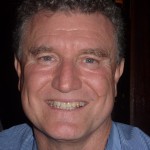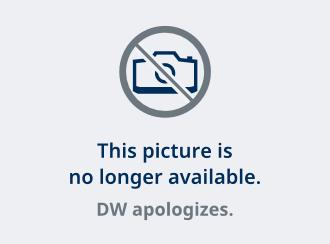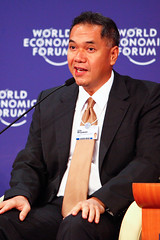Search Results for Tag: interview
A legendary soccer player teaches how to change the world
Soccer can be a very successfull tool when it comes to urgent things that have to be done, climate change for example. In Namibia, the Soccer-initiative “Global United FC” fits the role of a kickstarter very well. The players visit schools to get in touch with pupils and to spread the word about how the climate can be protected. Former professional soccer stars from all over the world take part. In Nambia all eyes are especially on Lolo Goraseb, who is a local soccer legend and today the president of the Namibia Football Players Union. Our reporter Thomas Mandlmeier had the chance to interview him during a “Global United FC” event.
Lolo Goraseb played longtime for the “Brave Warriors,” Namibias National team where he debuted at the age of 19 and went on to become the third most capped Namibian of all times. He started his career at the age of 17 for “Black Africa,” a Namibian football team from Katutura (Windhoek) that takes part in the Namibia Premier League.
Lolo Goraseb, Namibian Soccer Legend from DW_Global Ideas on Vimeo.
“The only living thing that can be seen from the moon”

Don Henry, Australian Conservation Foundation
Interview: Kerstin Schnatz
The Australian Conservation Foundation (ACF) is Australia’s main environment group. With the United Nation’s Earth Summit starting this Wednesday, Global Ideas reporter Kerstin Schnatz spoke to ACF’s executive director Don Henry in Rio de Janeiro. The conference is also known as Rio+20 as it marks the anniversary of the first Earth Summit twenty years ago. Over one hundred world leaders are in Rio to seek answers to global challenges such as climate change or marine pollution.
Global Ideas: If there was one thing you were free to write into the Rio+20 final paper what would it be?
Don Henry: I think there is a very straightforward issue at the moment and that is cutting subsidies for fossil fuels around the world. In Australia, we have subsidies worth billions of dollars that go into making fossil fuels cheaper for the mining industry.
But I would love to also ensure there is much stronger investment into renewable energy and energy efficiency around the world. I’d really like to see the international financial institutions like the World Bank and the International Monetary Fund (IMF) cut any loan programms to the fossil fuel sector and really boost loan portfolios to renewables and efficiency.

Activists at the Rio+20 summit protesting against fossil fuel subsidies
What impacts of climate change do you feel in Australia?
In recent years, we have had some terrible bushfires that have killed a lot of people in extreme, hot weather that has never been seen before in Australia. If the world doesn’t act, our best scientists are saying we are going to get double the amount of droughts and they will be twice as severe over the next 20-30 years. That will also have a big impact on food production in Australia.
And another example, something that is dear to my heart: We are very privileged in Australia that we are the custodians of the Great Barrier Reef, the largest reef system on earth and the only living thing on the planet that can be seen from the moon. The Great Barrier Reef is at grave risk from climate change. The best science out there is saying if global average warming goes beyond two degrees, we will see a severe impact on the reef. It would be a tragedy if our generation allowed one of the great global treasures, the Great Barrier Reef, not to be handed on in good condition to our children.
What is the most important goal Australians have achieved in the last twelve months to tackle climate change?
We’ve had a very big effort from Australian civil society to put a price on carbon emissions. Our government last November passed legislation for a carbon trade scheme. The legislation is complemented by a ten-billion dollar investment into clean energy and a carbon farming initiative that rewards farmers for tree planting and for holding on to forest areas. That’s been an important step forward for us as a nation.
At a side event at Rio+20, nuclear power was promoted as a sustainable way of producing energy. What’s the perception of nuclear power in Australia?
When you look at whether nuclear power is a solution for climate change in Australia, most Australians would say the risk associated with accidents and long lived nuclear waste is not a solution to action on climate change.
Apart from that, Australia is lucky because we receive twice the amount of solar energy per square meter than Germany does. So we have huge potential for renewable energies. We also have extensive gas reserves – which is still a problem with emissions, but gas plants still have less emissions than coal. So I think most Australians feel we don’t have to go there and we shouldn’t.
Australia may not have any commercial nuclear power plants. But the country has a strong mining industry exporting uranium for nuclear power plants around the world.
ACF strongly opposes uranium mining. Because often the mines have been imposed on Aboriginal people, on Aboriginal land without their full consent.
There are also real problems with safety for workers at the mines. For instance one of the mines in the Northern Territory, the Ranger uranium mine, has got a legacy of hundreds of accidents that have affected workers’ health.

Indiginous land owner Yvonne Margarula in front of the Ranger uranium mine. The mining site is surrounded by world heritage listed Kakadu National Park.
And then there is another huge problem: What do you do with the radioactive waste from the mining process itself? For example, a condition of mining operations is they have to make safe the waste ponds for ten thousand years. Human beings are not good at making things safe for one hundred years, much less ten thousand years.
And of course many Australians are very worried with what happens with uranium from Australia overseas. We do know for example, it was Australian uranium in the Fukushima reactors. So in an indirect way, Australia has contributed to the problems associated with the accidents.
What are you expecting to come out of Rio+20?
We are very worried that it will be quite a modest outcome at a time when environmental degradation and sustainability issues are so urgent and pressing globally.
Pictures: Global Ideas/ Dominic O’Brien
Youth and the Future
 It was Young and Future Generations Day at COP17 in Durban on Thursday, and among the many events, talks and side events that took place on that day alone, one message came across very clear and loud: it is time to act, the time for political inactions has run out. If the world doesn’t act now it might be too late.
It was Young and Future Generations Day at COP17 in Durban on Thursday, and among the many events, talks and side events that took place on that day alone, one message came across very clear and loud: it is time to act, the time for political inactions has run out. If the world doesn’t act now it might be too late.
Young people and their future are actually at the center of these talks, because it is their future that’s being talked about. They are the primary stakeholders in the outcome of this conference. So they have the right to demand more of the negotiators, and of the targets they are setting. In a session called “An Intergenerational Inquiry” UNFCCC Executive Secretary Christiana Figueres warned youth not to pick up the bad habits of negotiators and stay ambitious. In response, 16-year old Mokgadi Seemola silenced the room in stating, “Because of some of the wrong decisions some negotiators have made, my dream is shattered.” Drought has devastated her South African community and now she faces the harsh realities of climate change. She had hopes to share the world she grew up in with her children, and that’s now impossible.
One would hope that negotiators at this conference had heard the message: that there is no time to wait any longer on coming to a binding agreement on how to stop climate change. There is not much time left. So, what action will they take?
(Report based on Eco, the NGO newsletter by CAN at the UNFCCC meeting in Durban)
Indonesian Investment Chief talks to GI on climate change
Gita Wirjawan heads up the Indonesia Investment Coordinating Board. He talked to GLOBAL IDEAS about the impact of climate change on his country and how Indonesia deals with the challenge.
re:cap the re:campaign 1/4
GLOBAL IDEAS has been at the Berlin based re:campaign, a conference that presents and analyses the best in online-campaigning. We shot a few interviews during the event which we will be releasing from today.
Our guest in the first interview was Ole Seidenberg. He is one of the organizers of the event. His agency ‘Nest’ counsels NGOs to build up successful campaigning using the internet. Ole has as well been one of the bloggers who was part of the initiative “Adopt A Negotiator.” We talked about climate change and social media. The interview was held in german.









Feedback